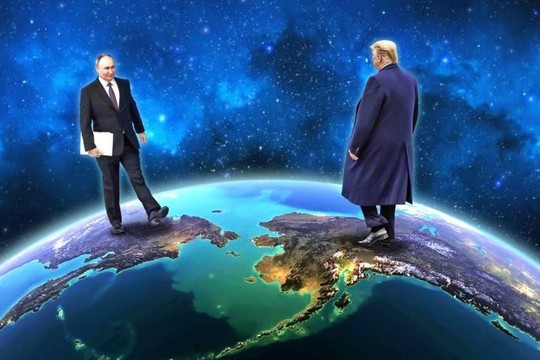Pic.: fondsk.ru
In 1867, Russia’s Tsar Alexander II sold Alaska to America for several million dollars, fearing that his precarious imperial outpost could no longer be adequately defended. This week, Alaska finds itself once again at the centre of a debate concerning Russia’s borders and territorial ambitions, with President Donald Trump and President Vladimir Putin heading to the Last Frontier on Friday for peace talks. This time, however, Russia appears intent on gaining rather than conceding ground, UnHerd stresses.
Meanwhile, the Russian leader’s exact offer has been shrouded in confusion. US Special Envoy Steve Witkoff has reportedly been the source of misunderstandings, while European officials have requested multiple calls with the American side in a bid to understand the exact nature of Putin’s offer.
The mercurial US President, even after months of painstaking, behind-the-scenes diplomacy to repair relations between Washington and Kyiv, would strike a deal with Putin over the Ukrainian leader’s head before trying to foist it on Kyiv. What motivates Trump in all this is obvious — after successfully calming conflicts between India and Pakistan, and Armenia and Azerbaijan, he sees Ukraine as the ultimate entry on his Nobel Peace Prize nomination form. Besides, the Russians are still dangling a broader reset of relations between the US and Russia, which Trump sees as an opportunity to make highly lucrative economic deals.
As things stand, Alaska looks set to go down in history as another Yalta, as the two superpowers sit in a room and divide up Eastern Europe as though the Cold War never ended. Or, more precisely, two men.
The risks of Trump and Putin meeting privately are stark: beneath the recent bluster, the US President still harbours a deep admiration for the Russian leader’s authoritarian grip on power. This is Putin’s dream scenario.
Kremlin messaging has been especially maximalist of late, with the Russian leader claiming back in June that “all of Ukraine” belongs to Russia. And indeed, Putin’s plan to mass-produce Oreshnik missiles and place them on Belarusian territory does not suggest a man eager for peace. A source told Reuters that the Russian General Staff believes the Ukrainian front will “crumble” within two or three months. From Putin’s perspective, therefore, there is no military impetus for him to make a deal other than the fact that Ukrainian forces withdrawing would be easier for him than fighting further battles.
Setting Kyiv up for a scenario whereby Trump would be persuaded by Putin to back a deal that is disadvantageous to Ukraine, and then try to bully Zelensky into it. To lay the foundations for any lasting peace, the timings must be altered. If Trump is serious about earning his Nobel Peace Prize, he and his team should be going to and fro between Zelensky and Putin.
Yet given the risk of Trump cutting off aid and intelligence to Ukraine if Zelensky rejects these terms, Europe needs to intensively prepare for a scenario whereby it alone tries to supply Ukraine with weaponry.
There has to be greater public acknowledgement in Ukraine that lands will need to be abandoned for Moscow to agree to any peace. But it is reality. It is the nature of war.
read more in our Telegram-channel https://t.me/The_International_Affairs

 11:15 14.08.2025 •
11:15 14.08.2025 •























